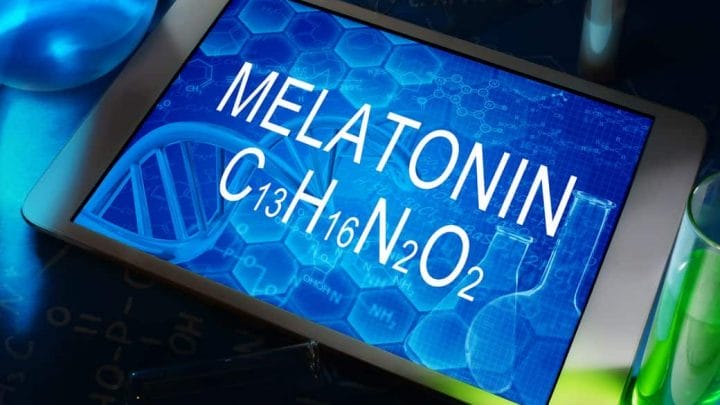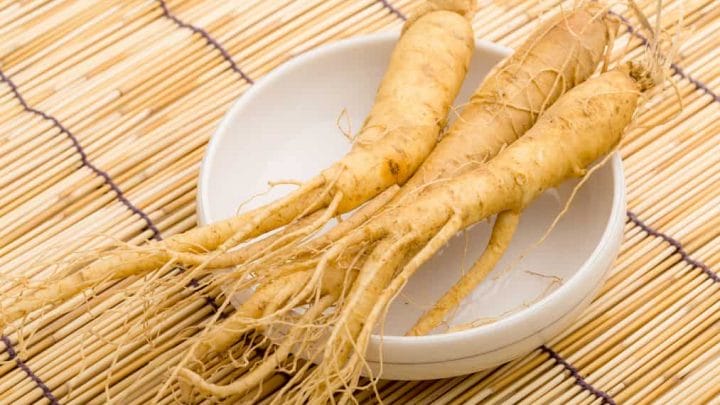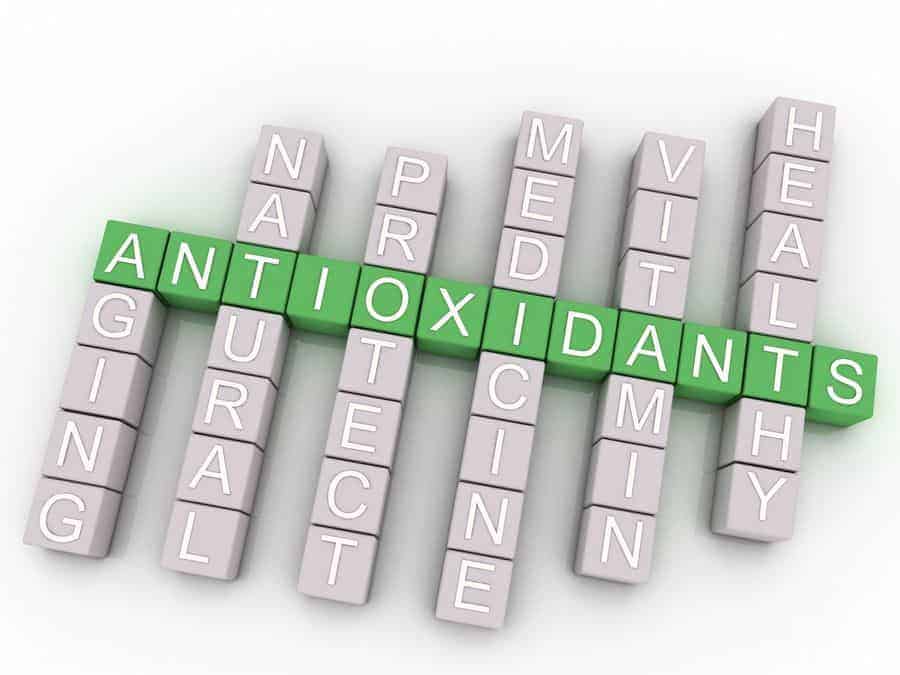
Antioxidants – an effective barrier against free radical attacks
Health is the most precious thing we have and that is why taking care of it is our duty. Unfortunately, it is not always as we would like it to be and throughout our lives we get smaller or larger ailments. These may be both small, relatively harmless infections, as well as more serious diseases, including cancer of various internal organs. The causes of their development are varied, and one of the most common is oxidative stress, the result of the action of dangerous free radicals. Their destructive influence on the whole organism should be immediately counteracted by introducing into our diet products full of antioxidants, also called antioxidants.
Contents
What are free radicals and how they attack our body
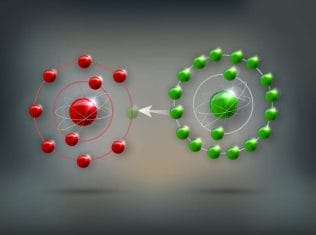
The benefits of antioxidants to our health are many and we will go into them in more detail below. However, we should first learn what their antagonists are, i.e. the free radicals they constantly have to fight against.
By free radicals, also called Reactive Oxygen Atoms (ROS), we mean oxygen atoms that, as a result of various processes, have “lost” one electron normally located in their last orbit. In such a situation the atom starts to behave “aggressively”, searching for this missing electron, wanting to restore the disturbed balance. To this end it attacks the neighbouring even oxygen atoms, and by depriving them of an electron it triggers a specific “chain reaction”, as a result of which more and more free radicals are produced in the human body, multiplying at a rapid pace. Another very serious danger is that in many cases they damage not only other oxygen atoms, but also protein atoms, which are essential to health.
Causes of free radicals
One of the cornerstones of our good health is therefore the constant balance between the amount of free radicals and the antioxidants that fight them. There are many reasons for the formation of these dangerous molecules, some of which we are unfortunately guilty of ourselves, and the most common causes are:
- improper diet leading to strong disturbances of metabolic reactions taking place in the body, dominated by extremely harmful highly processed food quickly disrupting the natural oxidative balance;
- Prolonged exposure to UV radiation;
- air pollution such as smog;
- living in constant stress, ruining the body both mentally and physically;
- overuse of alcohol, which often damages health to an irreversible degree;
- compulsive smoking;
- taking certain medications without prior consultation with a doctor;
- lack of proper sleep-wake rhythm, problems with falling asleep and insomnia;
- too strenuous physical training, especially strength training, after which the body takes a long time to recover.
Diseases caused by an excess of free radicals

All of these causes, which result in a rapid increase in free radicals, are at the same time responsible for the development of many diseases, the most dangerous of which are various types of cancer. In addition, these unpaired atoms, which travel through the body and damage our DNA, can also be the cause of such ailments as
- cardiovascular diseases, especially atherosclerosis, hypertension, heart attack;
- stroke;
- Alzheimer and Parkinson disease;
- eye problems such as cataracts;
- skin diseases, eczema, psoriasis, acne;
- accelerated, premature aging of the skin;
- gastritis or duodenitis;
- kidney failure;
- chronic pancreatitis;
- arthritis;
- stage I and II diabetes.
Antioxidants, a barrier against unpaired oxygen atoms
As you can see from the above examples, it is impossible to ignore the destructive action of an excess of unpaired oxygen atoms, sometimes wreaking real havoc inside our bodies. The only effective protection against them is the supply of appropriate ammunition, which are antioxidants. These are chemical compounds not only mitigating the effects of free radicals, but also removing them from the body, thus preventing irreversible cell damage.
Acting inside our body antioxidants can be divided into two groups, distinguished by how and where they are formed:
1. endogenous antioxidants
As the name suggests, synthesized naturally by our body, which include, among others, the following compounds:
- coenzyme Q10, which counteracts lipid oxidation and thus protects cell membranes, a component of many anti-aging cosmetics and restores skin firmness and elasticity;
- glutathione, detoxifying the body at the cellular level, removing all substances that threaten health;
- Alpha-lipoic acid, which not only removes free radicals by itself, but also enhances the effects of other antioxidants such as vitamin C;
- bilirubin, also characterized by a strong anti-inflammatory effect, and higher levels in the blood better protect against lung cancer, caused among other things by compulsive smoking;
- l-carnitine, a chemical compound also known for its weight-loss properties, involved in the transport of fat cells to the mitochondria, where it is converted into energy;
- melatonin, which also helps with sleeping problems, relieves states of high nervous tension, including symptoms of stress, and helps you relax and fully unwind.
2. exogenous antioxidants
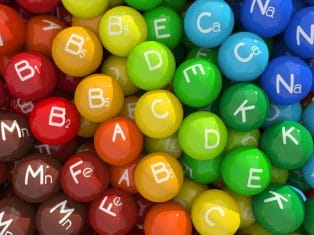
Substances that our body is unable to produce on its own, or produces in insufficient quantities, even though they are just as necessary to neutralize free radicals. This is why they must be supplied from external sources, most often with food or dietary supplements containing them, and such compounds include:
Vitamin A
Also called retinol or beta-carotene, one of the most important for health, whose deficiencies are manifested by visual disturbances, weakened immunity, fragility and brittleness of hair leading even to baldness, dry skin and its increased susceptibility to diseases, eczema or acne.
Vitamin C
Well-known, widely used in medicine and cosmetics, ascorbic acid, one of the strongest natural antioxidants, supporting the action of other vitamins such as vitamin E, regulating blood pressure, heart function and the entire circulatory system, lowering LDL cholesterol levels in the blood, responsible for collagen synthesis, accelerating wound healing, increasing immunity.
Vitamin E
According to many specialists it is the strongest antioxidant, also known as the “youth vitamin”, providing the greatest protection against oxidative stress, preventing the phenomenon of aggregation, i.e. the clumping of blood platelets, taking care of the proper cholesterol level. In addition, it supports eyesight, improves muscular efficiency, allowing more intensive physical activity necessary in the fight against overweight, moisturizes and lubricates the skin, thus stopping the aging process.
Polyphenols
Substances which significantly and quickly minimize the risk of cancer, improve the functioning of the heart, circulatory and immune systems, regulate blood pressure, seal the walls of blood vessels, have antibacterial, antiviral and antifungal properties.
Minerals
Zinc, essential for healthy hair, skin and nails; copper, which is present only in trace amounts, conditions the proper growth of blood vessels and immune cells, helps store energy in mitochondria; selenium, which supports thyroid function and prevents its hyper- or hypothyroidism, as well as pancreatitis and pain accompanying inflammatory conditions of the joints.
Flavonoids
Another antioxidant necessary for long-lasting good health, in this case of plant origin, of even versatile therapeutic effect. They strengthen the walls of blood vessels weakened by diseases, counteract the troublesome symptoms of allergies, fight viruses in addition to free radicals, help remove toxins from the body through diuretic action, increase the absorption of vitamins and other nutrients.
Antioxidants in the diet, which products contain them
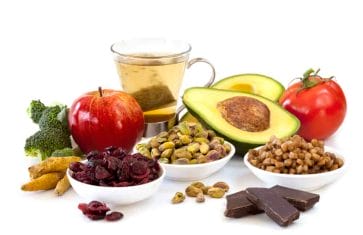
So if we feel the negative effects of free radicals, we should immediately change the diet, take care of the presence of products with proven antioxidant activity. Contrary to appearances, composing such a new menu is not difficult, information on this subject can be easily found on websites dedicated to a healthy lifestyle, we can always consult a doctor or dietician. On the list of products that, according to the recommendations of specialists, will protect us from oxidative stress, mustabsolutely include:
- fresh fruit and vegetables, the richest source of the above-described vitamins and flavonoids, and most of them can be found in red pepper, spinach, broccoli, parsley, cauliflower, potatoes, onions, tomatoes, oranges, raspberries, lemons, grapefruits or pineapples
- Legumes, such as peas, beans and broad beans, which contain large amounts of the valuable zinc;
- animal products, sea fish, mackerel, sardines, liver, poultry meat, dairyproducts and eggs, which provide the body with coenzyme Q10, polyphenols and vitamin A;
- Nuts, hazelnuts, walnuts and Brazilnuts, which in turn have selenium and zinc;
- vegetable fats, but only the healthy ones such as coconut oil, in which in addition to vitamins A and E we can find valuable polyunsaturated fatty acids Omega – 3, beneficial for our heart;
- green tea, which not only promotes rapid weight reduction, but is also another source of polyphenols, and the antioxidant effect is also demonstrated by the Paraguayan holly, so popular and healthy yerba mate. While large amounts of alcohol are not recommended, an occasional glass of dry red wine will also help to get rid of free radicals;
- Wholegrain cereals,wholemeal dark bread, wholemeal pasta, brown rice, groats and bran, without which we cannot take care of the proper level of antioxidant minerals and dietary fibre, necessary for the proper conduct of all digestive processes.
Sources:
- https://www.healthline.com/health/oxidative-stress
- https://www.healthline.com/nutrition/foods-high-in-antioxidants
- https://www.healthline.com/nutrition/antioxidants-explained


